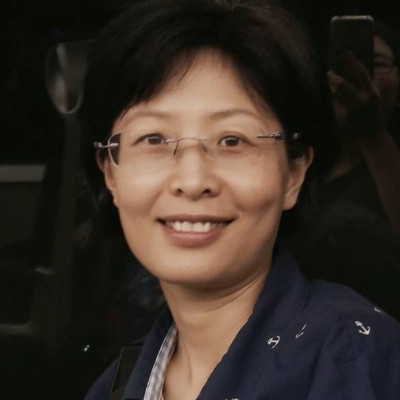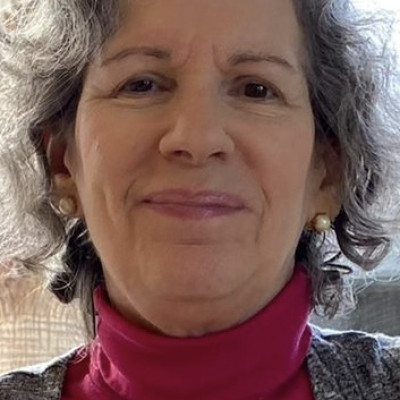Schedule Go Compact (displays all)
You can use Quick Lookup to quickly find sessions. But best is to use the LIVE SCHEDULE during the conference itself.
Please note
This search only includes sessions starting on 30th April [Asia/Seoul]. It does not include asynchronous sessions.
Social Justice and the Future of English Language Teaching in Korea #3112
KOTESOL Social Justice SIG
Defining social justice and critical education in Korean ELT as a starting point, audience members will be invited to frame this in the Korean context of English language teaching. Significant issues will then be brought forward which directly relate to the benefits or disadvantages of English language education and the broader sector as it exists in Korea in 2022. This will be a largely interactive session where participants shall be encouraged to post questions and comments on a online platform and to engage in conversation in the live session. The ultimate objective shall be to attempt to approach a consensus through dialogue on the purpose of critical education and social justice to English language teaching in Korea.
The Dictoquiz: a new adaptation to an old approach #2771
Language teachers far and wide have utilized dictation activities in their classrooms for centuries. Despite the technique's popularity, only a few variations have emerged over the years (dictocomp, dictogloss, etc). This presentation will begin with a brief explanation why and how dictation works and outline some of the benefits associated with doing it. Next, participants will have a chance to learn a progressive new adaptation to dictation they can use as a form of assessment or as a stand-alone classroom activity. Finally, participants will have a chance to react to what they heard and saw and make comments or suggestions to its implementation in the modern language classroom.
Reviewing Narrow Reading for Incorporating Informal Learning into Classrooms #2988
In this digital age, the way of language learning has been undergoing profound changes. When students have easy access to the many learning options outside classrooms, the choice of materials for classroom teaching and the role of teachers have become a question worth re-considering. To explore the possible incorporation of informal learning into classroom teaching, this paper revisited narrow reading with online news articles. Both running and concurrent news articles were selected, and their vocabulary recycling rates were inspected and checked with major corpora. The results showed that concurrent news articles are better at yielding a vocabulary recycling rate that meets the lexical learning threshold within an article-length suitable for classrooms. The finding suggests that concurrent news articles serve as effective feeding materials for vocabulary learning. Also provided are proposed class activities that aim to increase students’ ownership of the learning process and to ensure their learning is effective and systematical.
Overcoming the Limitations of COVID-Affected Classes Through Educational Technology #3095
KOTESOL MCALL SIG
COVID-19 has left a lasting impact on education. Shifting between offline and online classrooms midcourse, faculty and student attendance issues, and ever-changing schedules are just a few of the many problems educators and students have had to cope with. The goal of this round table discussion is two-fold: to share our experiences to get a better understanding of the issues we face and to discuss resources we can use to overcome these challenges.
The discussion will be moderated, and all attendees are encouraged to prepare at least one challenge they have faced in their classes this past year. They are also encouraged to prepare a brief, two-minute presentation of an app, website, device, or other tool that has enhanced their students’ learning. Educators of all subjects and grade levels are welcome to attend.
Uniting Students with Experts around the World in the Global Classroom #3002
In the Global Classroom, we unite middle school students around the world together to innovate local solutions to world issues with the help of experts. In our latest project we explored the question: How does the food we eat impact global warming? First, students studied the causes and effects of global warming on their country. Then, they analyzed the impact of the food they ate and came together to create strategies to decrease their carbon footprint. Then, they met to dialogue with experts about the food production and distribution process. Finally, they designed and implemented relevant local solutions like planting a school garden, vegetarian Mondays in the cafeteria, building a biodigester and exploring eating insects as a source of alternative protein.
All of our projects allow students to learn to research, speak and collaborate deeply with peers and experts across the globe. Our projects also help students develop a sense of belonging to a world community and a sense of agency to live in the world in a way that contributes to the greater good.
Engaging EFL Learners Through the Game of Go #3006
Motivating EFL learners is a daunting task as exam-driven teaching requires drilling students to memorize vocabulary and grammar rules. Typically, TL materials cover unfamiliar topics from foreign countries which students can't easily relate to, thus impeding the learning process. Practical alternatives are urgently needed to overcome this challenge. This talk proposes to teach the East Asian board game Go inside the ESL classroom. It aims at demonstrating how EFL educators can design lessons on the game of Go that engage students actively. As the basic Go rules are simple, learners can grasp them within five minutes and have immediate hands-on activities to experience the game themselves. In addition, there are many interesting facts (i.e., history, professional players, competitions) that you can utilize when developing TL materials. In the first part of the workshop, we will elaborate on why this East Asian tradition is worth learning and what makes Go different from other board games. The second part of the workshop will focus on the basic Go rules, including some hands-on activities that you can easily use in your EFL classrooms.
The L2 Motivational Self-System in English Writing Through the Process Writing Approach #2752
When students learn a second language (L2), their cognition and perceptions may be influenced by various social and environmental factors at the same time (Csizér, 2019). Understanding the underlying constructs of the L2 Motivational Self-System (L2MSS) (Dörnyei, 2005) becomes vital for language learners and teachers alike, as it plays a key role in directing the success or failure of the language learning process in the language. Dörnyei's L2MSS is composed of three constructs that direct learners’ behaviour: the ideal L2 self, the ought-to L2 self, and the L2 learning experience. This literature review focuses on the L2MSS in English writing through the process writing approach — one of the writing approaches theorized by Hyland (2021) — which centres on the writer and describes writing in terms of the processes used to create texts, and which emphasizes the personal creativity of the individual writer, the cognitive processes of writing and the writer’s immediate context.
Asset-Based Teaching Approach: Changing Perceptions to Create a Sense of Belonging #2791
We often hear about people who believe the glass is half empty or half full. Have you heard the glass can be refilled? How does changing our perception from a deficit mindset (glass half-empty) to an asset-based mindset (glass can be refilled) improve how we perceive our students and how they perceive themselves? What is an asset-based approach to education? All students need to be “seen” in classroom materials and find relevance in topics that connect with their interests to be engaged with the content. Lowering our expectations of students or having a deficit mindset influences how students think of themselves. This session will focus on an asset-based approach that emphasizes how to instill a sense of belonging in language learners by scaffolding new content, engaging students with classroom materials they relate to and are excited about, and providing edtech solutions that ensure inclusivity and acceptance of learning differences.







